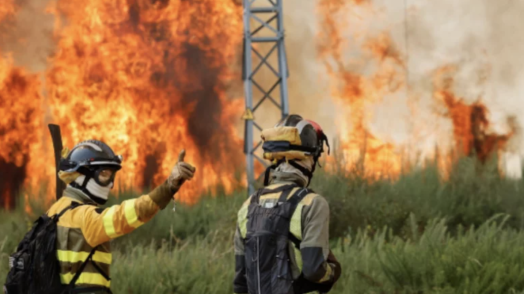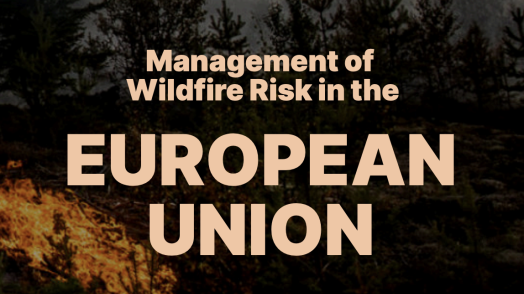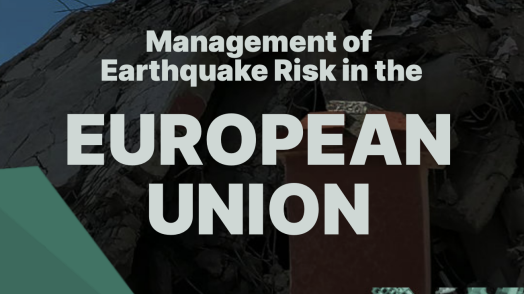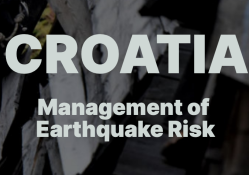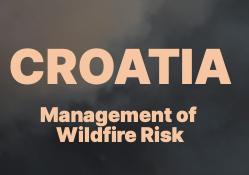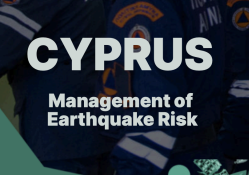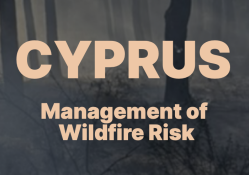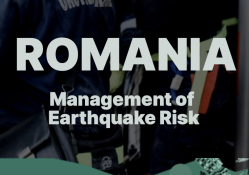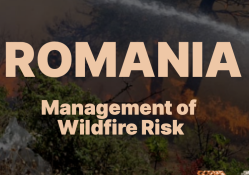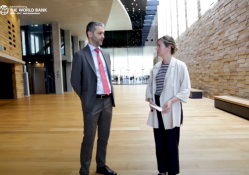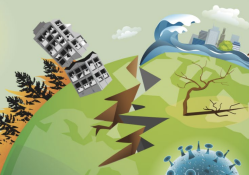The Technical Assistance Financing Facility for Disaster Prevention and Preparedness (TAFF) is a novel technical assistance program launched in 2024 as a partnership between the European Commission through its Directorate-General for Civil Protection and Humanitarian Aid Operations (DG ECHO), the World Bank and the Global Facility for Disaster Reduction and Recovery (GFDRR). TAFF aims to support EU Member States and Participating States of the Union Civil Protection Mechanism (UCPM) as well as Kosovo to increase their technical capacity for disaster prevention and preparedness and support the implementation of the Union Disaster Resilience Goals adopted by the European Commission in 2023, the World Bank’s strategy in the Europe and Central Asia region, as well as the GFDRR mission. TAFF provides access to tailor-made technical support through leading global expertise on disaster and climate resilience.

Learn more about the program
Extreme weather events, overwhelming national response services, are becoming an annual occurrence in Europe. The continent is becoming increasingly vulnerable to a wide range of hazards, including earthquakes, floods, landslides, wildfires, heatwaves, and other extreme weather events. Between 1980 and 2020, natural disasters affected nearly 50 million people in the European Union (EU), and caused on average an economic loss of €12 billion per year. Exacerbated by climate change, these events are increasing in number and becoming more intense and frequent, causing significant impacts on the economies in the region, on the physical infrastructure, but more importantly on people. Without climate adaptation interventions, more than 400,000 jobs could be lost annually by 2050, with the overall cost of climate-related extreme weather reaching €170 billion by the end of the century.
Strengthening financial resilience, making smart investments for disaster and climate resilience, and enhancing institutional capacity and preparedness makes economic sense. To be better prepared for disasters, there is a need to scale up investments in enhanced disaster prevention and preparedness in the region.
The Technical Assistance Financing Facility for Disaster Prevention and Preparedness (TAFF) is a partnership between the European Commission through its Directorate-General for Civil Protection and Humanitarian Aid Operations (DG ECHO), the World Bank and the Global Facility for Disaster Reduction and Recovery (GFDRR).
Its overall objective is to strengthen the knowledge and capacities of countries under the Union Civil Protection Mechanism (UCPM) for disaster and preparedness with a focus on:
- Strengthening the capacity of civil protection and other relevant competent authorities in scaling up disaster and climate resilience in line with the Union Disaster Resilience Goals and the European Green Deal, as well as the countries’ national priorities.
- Supporting investments in disaster prevention and preparedness through the development of a project pipeline and enhanced administrative capacity.
- Improving the knowledge base on disaster risk management, and facilitate the sharing of knowledge, good practices and information.
The TAFF is a mechanism which allows national civil protection and disaster risk management authorities to access technical assistance and global knowledge on prevention and preparedness to support country efforts on disaster risk management (DRM). The TAFF is aligned with:
- The European Union Disaster Resilience Goals, which focus on enhancing UCPM response capacity, strengthening crisis and emergency preparedness of civil protection, improved risk analytics, anticipation and planning, enhanced early warning systems, and increased risk awareness of the population.
- The World Bank’s strategy in the Europe and Central Asia (ECA) region, which focuses on supporting a green transition, building resilience, and strengthening institutions.
- The GFDRR mission to support communities and countries to reduce risk, prepare for, and recover from disaster by integrating DRM and climate change adaptation into development strategies and programs, and contributing to country efforts in the implementation of the Sendai Framework for Disaster Risk Reduction 2015-2030.
TAFF has two components:
1. Country-specific technical assistance to strengthen the capacity of civil protection and other relevant competent authorities under the UCPM in scaling up investments contributing to disaster and climate resilience. Technical assistance includes various types of analytics, technical studies and recommendations for plans and strategies, piloting of activities, and capacity-building/training activities. Key areas of support include:
- anticipate - improving anticipation and disaster risk management planning to proactively address potential hazards;
- prepare - raising risk awareness and preparedness levels among the population to effectively respond to emergencies;
- alert - enhancing early warning and hydro-meteorological systems for timely and accurate information dissemination; and
- secure - strengthening national civil protection systems to strengthen to prevent and prepare for disasters.
2. Knowledge and capacity building to facilitate the transfer and sharing of knowledge among countries on disaster risk management and facilitate the sharing of good practices across UCPM countries. Knowledge products and activities include for example studies, collection of best practices and lessons learned, practical guidance/knowledge notes, interactive workshops and technical deep dives/clinics, and training programs.
TAFF is fully funded by the European Union and managed by the Global Facility for Disaster Reduction and Recovery (GFDRR).
Activities are implemented by World Bank teams from the Europe and Central Asia Disaster Risk Management and Urban Resilience unit of the World Bank, and GFDRR's global experts. Implementation is conducted in coordination with the European Commission Directorate-General for Civil Protection and Humanitarian Aid Operations (DG ECHO).
TAFF projects will also be implemented in coordination with relevant stakeholders involved in disaster and climate resilience in the region.
The Union Civil Protection Knowledge Network will also contribute to sharing good practices and knowledge from TAFF.
Country-specific technical assistance
Eligible countries include EU Member States, Participating States of the UCPM, and Kosovo* in view of their ongoing efforts to join the UCPM.
Eligible entities include national level civil protection authorities or authorities with disaster risk management (DRM) responsibilities of eligible countries.
Expressions of Interest and Shortlisting: Eligible entities can respond to a Call of Expressions of Interest (EoI) which will be published on DG ECHO and GFDRR websites. The EOI will be accepted on annual basis within defined timeframes. Proposals outside this range, particularly due to emergency situations, will be considered on a case-by-case basis.
Proposals and start of activities: Based on the approved shortlist, World Bank/GFDRR, in coordination with beneficiary country and entity develops a full proposal for the proposed activities, and World Bank teams start implementation.
Project duration is expected between 18 and 24 months.
Coordination and reporting: The World Bank/GFDRR teams implement activities in coordination with the beneficiary, and disseminate knowledge and lessons learned.
Knowledge and capacity building
The selection of knowledge and capacity building activities will consider country-specific activities and topics of interest that are relevant and can benefit UCPM countries in terms of knowledge transfer.
*This designation is without prejudice to positions on status and is in line with UNSCR 1244/1999 and the ICJ Opinion on the Kosovo Declaration of Independence.
2024 Projects:
- Strengthening Albania’s Fire Risk Management and Search and Rescue Capacity
- Return of Investments in Disaster Resilience Measures: Identifying measures & generating evidence to inform decision-making in Germany
- Towards an Integrated Wildfire Risk Management in Iceland
- Improving Disaster Risk Understanding, Impact-Based Forecasting, and Early Warning in Kosovo
- Strengthening Moldova’s Preparedness to Natural Hazards, Climate-related Shocks, and Health Emergencies
- Resilience Investments, Governance and Recovery for Disaster Risk Reduction in North Macedonia
- Romanian Assistance for Post-Disaster Improvement and Development (RAPID)
- Türkiye – Enhancement of the Flood Early Warning System in Samsun and Communication Strategy
- Component 2: Enhancing Policy and Investments for EU Disaster and Climate Resilience
2025 Projects:
- Evidence for Modernising the Firefighting System in the Republic of Croatia
- Ireland: Good Practice and Recommendations for Strengthening the National Strategic Policy Framework for Emergency Management
- Enhancing National Crisis Preparedness and Wildfire Risk Management in Kosovo
- Montenegro: Enhancing Disaster Resilience and Continuity of IT Infrastructure and Services in the Operational Communication Center 112
- Strengthening Emergency Management and Disaster Preparedness in Serbia
- Sweden: Review of the State of the Art of National Disaster Loss Databases
- Türkiye - Resilient İzmir: A Strategic and Inclusive Initiative for Multi-Hazard Preparedness and Risk Reduction
- Component 2: Enhancing Policy and Investments for EU Disaster and Climate Resilience – Phase 2
Call for Expressions of Interest
The third call for Expression of Interest will open in early 2026. Below are the relevant documents from the 2025 call.
- Annex 1: Factsheet
- Annex 2: Guide for Applicants – Expressions of Interest
- Annex 3 Template for Expressions of Interest
- Annex 4: Evaluation Criteria for the Expressions of Interest
- Annex 5: List of Potential Activities to be supported by TAFF
- Annex 6: Booklet of TAFF Projects 2024-2025.
- Annex 7: Questions and Answers
TAFF Workshop, October 2-3, 2025
- Photo Gallery
- Improving Emergency Preparedness – Tools and Examples
- BLOCK 1 - Investing in Integrated Wildfire Risk Management
- BLOCK 2 - Strengthening Early Warning Systems and Outreach
- BLOCK 3 - From Impact to Recovery
- Earthquake Risk Management in Europe - Challenges, Good Practice and Priorities Going Forward
- Making Disaster Preparedness Inclusive
- Nature-Based Solutions
- Prioritizing Critical Infrastructure and Services
- Scaling up Nature-Based Solutions – Knowledge, Tools, and Examples
- Supporting Disaster Preparedness
- Using Satellite Geospatial Information for Disaster Risk Management – Knowledge, Tools, and Examples
Stories
- A View from the Understanding Risk Global Forum 2024
- From Risk to Resilience: Strengthening Preparedness for Wildfires and Earthquakes in Europe
Videos
Publications

Watch the Technical Assistance Financing Facility videos playlist on YouTube

